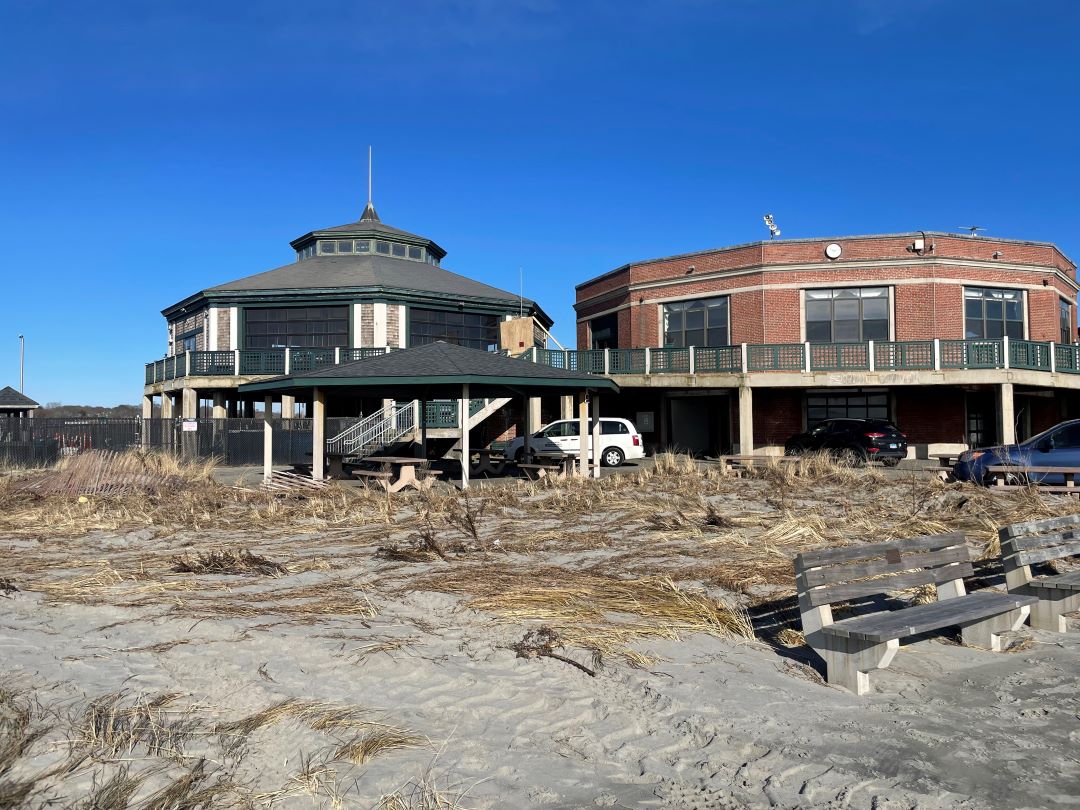New Commission Created to Reduce Rhode Island’s Wildfire Risk
September 11, 2023
PROVIDENCE — Nearly five months after one of the worst Rhode Island wildfires in decades, state officials are studying how to prevent the next one.
A new 12-member study commission is scheduled to meet Sept. 12 for the first time. Created by a resolution sponsored by Rep. Megan Cotter, D-Exeter, in the last legislative session, the commission aims to evaluate forest management practices for preventing future wildfires in forestland around the state.
Cotter advocated for the commission after an April brush fire exposed just how vulnerable towns like Exeter are to wildfires. That brush fire, the worst fire in Rhode Island since 1942, burned 238 acres of forestland; 45 of those acres belonged to The Nature Conservancy as part of the Queen’s River Preserve, the rest was a combination of state-managed lands and private property.
The fire came within 100 feet of nearby homes, but there were no reported injuries. Some residents were asked to briefly evacuate.
Despite the destruction, the forestland, especially on the Queen’s River Preserve, started showing signs of regeneration almost immediately after the fire.
“I really, truly believe that fire was a huge warning for us for the future,” Cotter said in a recent phone interview. “It’s only a matter of time with climate change and drier weather.”
The state isn’t doing enough to educate private landowners on how to properly manage forest on their property, according to Cotter. It’s also missing out on federal matching dollars by not devoting more money to forestry management, she said.
Once thought of as only a problem experienced on the West Coast, climate change is bringing wildfires closer and closer to Rhode Island. Since the Exeter brush fire in April, the state saw many hazy days over the summer as the smoke from wildfires in eastern Canada drifted south.
It’s only going to get worse as human-caused climate change spurs more frequent hot, dry, and windy conditions that contribute to wildfires, putting people and ecosystems at risk. Climate change, together with poor land management practices and development sprawl, have increased the availability of fuel and frequency of weather conditions that spark and spread dangerous fires.
Human activity remains the chief cause of wildfire ignition. Over a 20-year period, from 1992 to 2012, humans were responsible for igniting 84% of wildfires, according to a 2017 study.
“We’re in a time when we need to be investing resources and figuring out how we can combat climate change,” Cotter said. “That’s not just with our oceans, that’s also with our forestry.”
The study commission will operate on an expedited schedule. Per her resolution, it has until the end of February to report its findings to the House.
The agenda for Tuesday’s meeting can be found here.
Besides Cotter, the other commission members include Rep. Michael Chippendale, R-Foster; Tee Jay Boudreau from the Department of Environmental Management; Marc Pappas from the Rhode Island Emergency Management Agency; Armand Niquette of the Rhode Island State Association of Firefighters; Scott Millar of the Forest Conservation Commission; Kate Sayles of the Rhode Island Land Trust Council; William Fortune of the Forest Conservators Organization; Chief Scott Kettelle from the Rhode Island Association of Fire Chiefs; former DEM chief of forestry Catherine Sparks; Dick Wenty of the Rhode Island Association of Conservation Districts; and John Torgan of The Nature Conservancy.




This Commission is just an excuse by the timber industry to justify logging more of our natural native forests while their logging practices which are clearcutting is making our forests more prone to forest fires. Also, not one member of this Commission has a PhD in Environmental Science. Instead, you have a group of timber industry collaborators including some who have personally contributed to making our forests more susceptible to Forest fires. As the article stated, the vast majority of wildfires are human caused. We shouldn’t be blaming our natural forests.
The people making the wildfire issue worse shouldn’t be the ones tasked with fixing it. I also doubt that any “environmental” person on this Commission knows the true wildfire history of Rhode Island or the state’s natural history.
Rhode Island is not the west coast! Wildfires are part of the natural ecosystem in the west. They are not in the East coast where fires were uncommon before European settlement.
They only become widespread in the mid 1800s to the mid 1900s due to the clearcutting of the original fire resistant Primary Old Growth Forest which led to fire prone early successional habitat. The same habitat DEM and state environmental groups are trying to unnaturally create again.
If we had a Natural Heritage Program, perhaps they would know this, but they conveniently got rid of that program which could have helped us a lot right now.
While I think the legislator who created this Commission has good intentions, due to the influence of certain people, this Commission is just a timber industry scam that will make the situation worse and needlessly lead to the destruction of more of our natural native forests which are already on the decline.